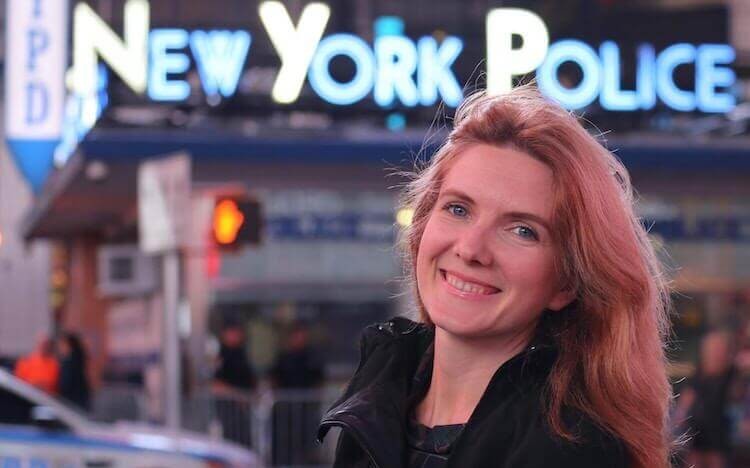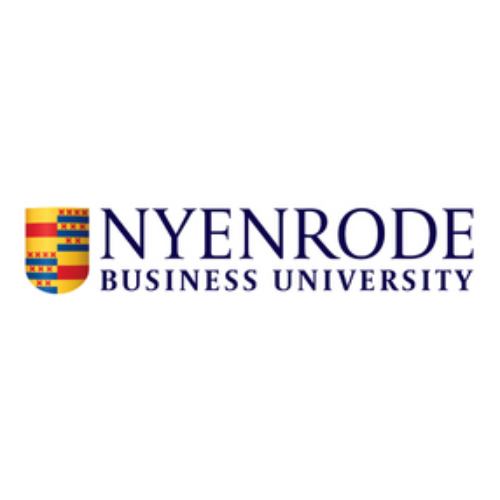In the Financial Times Global MBA Top 100, only five schools have over 50% female students; 37 schools, meanwhile, have at least a two-thirds male classroom.
Yet growing campaigns for gender equality—whether this is through closing the gender pay gap or bolstering the female presence in the boardroom—is propelling an influx of women into the world of business.
This is reflected in the sharp increase of female applications to business school in 2019, with programs in Asia Pacific marking a 66% increase and Europe a 58% increase in female applicants, according to the Graduate Management Admissions Council (GMAC).
Business schools must adapt their practices and the curricula to produce truly diverse environments in which women in business are able to thrive as much as their male counterparts.
Giving female students equal access to opportunities is often one of the major things preventing women from accelerating, or even starting, their careers.
Valeria Buzivska (pictured), having built a successful career in her native Ukraine, was keen to extend her career internationally. Yet she faced obstacles as a woman in a male-dominated business world.
“When I was applying for work, even with my experience, I found that the preference was given to a man,” Valeria notes.
She was left with two options—take a role at a multinational company in Ukraine with the possibility of travel, or study an MBA.
At “the heart of European business”, Valeria opted for Nyenrode Business University in Amsterdam, famed not just for its academic prowess but its strong emphasis on gender and cultural diversity.
Offering equal opportunity regardless of gender or background is one of the hallmarks of Nyenrode’s full-time MBA program, even starting at the composition of the school. The MBA classroom has a 50-50 gender split.
“We have total diversity in the lecture rooms,” stresses Professor Dr Désirée van Gorp (pictured right), associate dean of degree programs at Nyenrode. “It is of great importance that we are supporting women in all kinds of ways, and facilitating them to achieve what they are able to.”
For Valeria, this attitude actually made the difference in terms of being able to study her MBA. Valeria made the move from Ukraine to the Netherlands with her eight-year-old son.
“For women, there is often a belief that to be a good mum you’ve have to stay at home with the kids,” Valeria notes. Nyenrode, however, enabled her to bring her son to university, supporting her in finding the perfect balance of business and family.
Valeria has fulfilled the career dream she had in Ukraine, now living and work in New York City as an associate director at a top media strategy firm.
Nyenrode MBA student Loini Ter Avest (pictured) has a similar story, albeit from a very different background.
Loini’s career started in her home country of Namibia, where she found herself climbing quickly through the political ranks. Starting as an economist at the Ministry of Economics, she was hired as a chief policy analyst working for prime minister Hage Geingob. When he suddenly became president of Namibia, Loini followed, where she worked as a deputy director.
Despite years of experience, Loini was still eager to broaden her horizons.
“I wanted to study an MBA because it is always important to never stop reinventing oneself,” Loini notes.
She sees herself moving towards the private sector, and with her experience confined mostly to the public sector, she wanted a program which would give her business confidence as well as networking opportunities.
Nyenrode ticked both of these boxes.
It was one of the first occasions for Loini were it felt like all voices, regardless of gender or nationality, were treated with equal weight. This even applies to the relationship between student and faculty.
“The environment really encourages us not to be afraid, to speak our mind, and to really question the professors on the things which they are teaching us,” Loini reveals.
It also gave her an unprecedented access to the industry network. The ‘Meet the CEO’ sessions on the Nyenrode MBA gives students the chance to meet and talk with leading industry professionals.
“We heard the real life challenges of these companies directly from CEOs, tying in the theory with the practical side,” Loini notes.
Taking these steps is about empowering women and urging them to claim the position they deserve, whether this is in the classroom or the boardroom.
Business schools like Nyenrode, in setting this agenda, create an obligation for schools to follow suit.
“The next step is to have a dialogue with businesses to make it more diverse in practice," Désirée says. "Only when diversity is embraced through policy [in organizations] will it really work."
*All images are interviewees' own
Student Reviews
Nyenrode Business University











